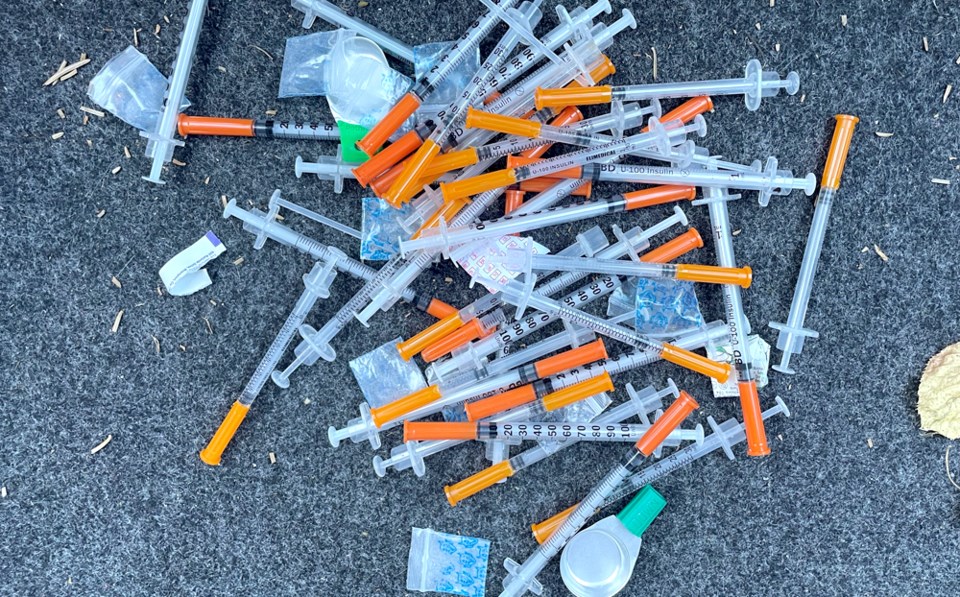Paramedics respond on average to one overdose or drug poisoning every day in Richmond.
The number of deaths from toxic drugs, as reported by the BC Coroners Service, are low in Richmond compared to other communities like Vancouver and Surrey, with 24 so far in 2022.
But of the 24 deaths this year in Richmond, 18 took place inside residences - 14 in private homes and four in other residences. Three deaths occurred outdoors, and three weren’t specified by the coroner’s service.
The coroner’s office released its monthly statistics on Wednesday, and reported 179 deaths in the province from toxic drugs, with fentanyl and other deadly chemicals causing fatalities. There were no deaths in Richmond in October from drug poisoning, according to the coroner.
Across B.C., as of Oct. 31, 1,827 people have died this year from toxic drugs.
According to BC Emergency Health Services, paramedics responded to well over 35,000 overdoses in B.C. last year, almost 100 every day on average.
So far this year (as of Nov. 27), paramedics have responded to 340 overdose patients in Richmond. Last year, they responded to 383 overdoses, which is on average more than one a day.
'Continuum of care' needed for those struggling with addiction
Donna Colpitts, who has worked as a counsellor with people in recovery from addiction, said there’s a need for a “continuum of care” for those struggling with addiction, including a safe supply of drugs, harm reduction, detox facilities, treatment, recovery and after-care.
She pointed out there are many people in Richmond who are in recovery and leading productive lives.
“In today’s toxic supply environment, many of them may not have survived long enough to get there,” she said. “Relapse is usually a part of recovery and, with the drug toxicity we have now, relapse can mean death instead of a step on the journey.”
As for harm reduction, there are no publicly accessible safe injection sites in Richmond, where drug users can be supervised while injecting and where drugs can be tested for toxins.
Both temporary modular housing facilities – known as “mods” – have a safe injection site but only for the residents of these buildings. Coast Mental Health also has one for its residents in Richmond.
Those using drugs in Richmond, however, can access clean needles and supplies to reduce infections while using unsanitary needles or sharing needles.
One political party, the Richmond Community Coalition which Coun. Chak Au belongs to, released a statement during the recent municipal election, saying it was in “principled opposition” to safe-injection sites in Richmond.
At safe-injection sites, users can test their drugs and are supervised while using them in case of a poisoning.
In a statement to the Richmond News, VCH said “those who are unattached to a housing site can visit any overdose prevention site (safe injection site) operating within the VCH region.” This would mean Richmondites would have to go to Vancouver’s Downtown Eastside.
But many drug user advocates say the best solution is having a clean, untainted supply of drugs as much of what is sold on the street contains high levels of fentanyl, carfentanil and increasingly benzodiazepines that can be deadly.
Allowing people to buy a clean supply of drugs would have to have to be allowed by the federal government, which regulates drugs and pharmaceuticals.
While at the Richmond Jewish Day School on Friday, Prime Minister Justin Trudeau said he had a “good discussion” on the issue of drug toxicity deaths with B.C. Premier David Eby.
“We were happy to move forward with B.C. on landmark steps on drug supply,” Trudeau said, although he didn’t specify what these steps were.
Premier David Eby, at the same event, said there’s a “lot of work to do in the health-care system,” and part of that is addressing mental health and addiction.
“I’ve already met too many parents who lost kids, too many families who have been hurt by the opioid crisis, and British Columbia will continue to do everything possible to address the toxic drug supply and support people struggling with addiction and address this issue in our province,” Eby said.
When pressed by the Richmond News on a timeline to address the drug poisoning crisis, he mentioned a new program announced last week at St. Paul’s Hospital whereby patients who are in the hospital because of overdose are given the option of going directly into detox and then to treatment. He didn’t address any timeline on bringing a safe supply of drugs to B.C.
No detox centre in Richmond
Richmond also doesn’t have a detox centre. However, Vancouver Coastal Health said, in a statement to the News, they have addiction assessment and treatment for patients at Richmond Hospital seven days a week, and outreach services for “withdrawal management.”
To get into a detox facility, Richmondites also need to go to Vancouver – and even these have waitlists to get in, Colpitts explained. And, by the time a detox bed is available, they might have changed their mind or just can’t get to the appointment.
And even after detox, there is usually no treatment bed for them to go into, “so they are back on their own and usually right back using,” she added.
Also lacking from this continuum of care is supportive housing where they can continue their sobriety after treatment.
Drug poisoning is often associated with people who are deep in addiction – this is not always the case, Colpitts noted.
“I have known ‘recreational users’ who have been poisoned,” she said.




